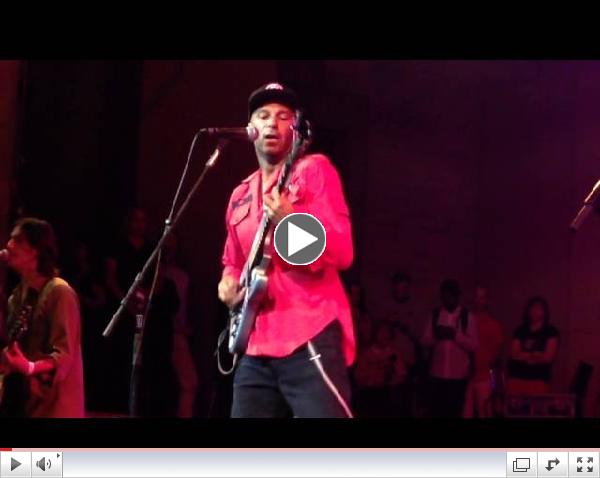 | Tom Morello ~ LIVE ~
Marching On Ferguson |
|

NEW CCDS Pamphlet
on Climate Change.
|
Blog of the Week...

|

New CCDS Book Reporting on Vietnam
|
|
Radical Jesus:
A Graphic History of Faith 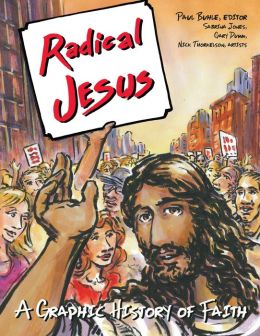 By Paul BuhleHerald Press By Paul BuhleHerald Press
|

Want to Know what CCDS has
been doing...Check it Out!
|
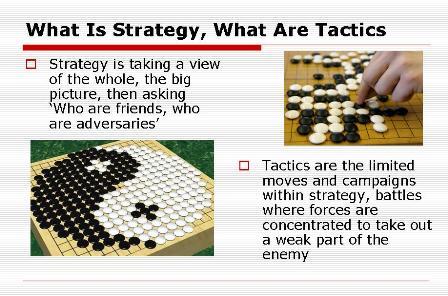 Keep On Keepin' On Keep On Keepin' OnHating the 'Middle Class,' Why Socialists Run in Elections, Strategy and Tactics Slide Slow, Class and Privilege, the Green New Deal ...and other Short Posts on Tumblr by Carl Davidson
|

Edited by Carl Davidson Revolutionary Youth and the New Working Class: The Praxis Papers, the Port Authority Statement, the RYM Documents and other Lost Writings of SDS Changemaker, 273pp, $22.50
For the full contents, click the link and view 'Preview' under the cover graphic.
|
 The new annual edition of our journal of discussion and analysis is now out. More than 170 pages, it includes 14 articles on strategy austerity, organizing, and the right. Cost is $10 plus shipping. Or get one by becoming a sustainer. Click the title to buy it directly. The new annual edition of our journal of discussion and analysis is now out. More than 170 pages, it includes 14 articles on strategy austerity, organizing, and the right. Cost is $10 plus shipping. Or get one by becoming a sustainer. Click the title to buy it directly.
|
|
By Randy Shannon, CCDS

"Everyone has the right to work, to free of employment, to just and favorable conditions of work and to protection against unemployment."
- United Nations Universal Declaration of Human Rights, December 10, 1948
I. Introduction
The "Great Recession" that began in 2007 has caused the greatest percent of job losses since the Great Depression of 1929. This crisis is the end of an era of unrestrained 'neo-liberal' capitalism that became public policy during the Reagan administration. The crisis marks a new level of instability with the growth of a global financial elite that targeted US workers and our trade unions after World War II.
|
|
Order Our
Full Employment Booklets
 |
...In a new and updated 2nd Edition
Capitalism may well collapse under its own excesses, but what would one propose to replace it? Margaret Thatcher's mantra was TINA...There Is No Alternative. David Schweickart's vision of "Economic Democracy" proposes a serious alternative. Even more fundamentally, it opens the door to thinking about alternatives. His may or may not turn out to be the definitive "successor system," but he is a leader in breaking out of the box. |
 by Paul KrehbielAutumn Leaf Press, $25.64
by Paul KrehbielAutumn Leaf Press, $25.64 | | Shades of Justice Video: Bringing Down a President, Ending a War |
|
 By Giuseppe Fiori
Verso, 30 pages
|

Essays on Mondragon, Marx, Gramsci
and the Green and Solidarity Economies |
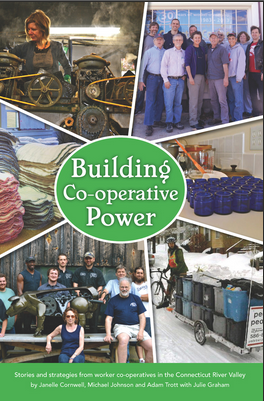
The Story of Workers Coops
in the Connecticut River
Valley Today.
Coauthors: Janelle Cornwell
(Worcester State University),
Michael Johnson (Grassroots
Economic Organizing Newsletter)
and Adam Trott (Valley Alliance
of Worker Co-operatives and
Collective Copies)
|

- Foreword by Susan Brownmiller
- Preface by Ken Wachsberger
$37.50 + $6 shipping
|
|
Discussion Documents for a Militant Movement

By Don Hamerquist
|
|
|
|
An Invitation to CCDSers and Friends...
 Take a Crowd Take a Crowd
to the Polls,
and Keep Them
Organized!
We're the Committees of Correspondence for Democracy and Socialism...Do you have friends who should see this? Pass it on...Do you have a blog of your own? Others you love to read every day? Well, this is a place where you can share access to them with the rest of your comrades. Just pick your greatest hits for the week and send them to us at carld717@gmail.com! Most of all, it's urgent that you support low-wage workers, oppose militarized police, the war on Gaza, defend voter rights, plan for 2014 races now, oppose austerity, support the 'Moral Mondays' in North Carolina, the fight for the Green New Deal, a just immigration policy and the Congressional Progressive Caucus' 'Back to Work Budget'! We're doing more than ever, and have big plans. So pay your dues, make a donation and become a sustainer. Do it Now! Check the link at the bottom... |
NYC Workers vs.Walmart in $15 Hourly Wage Fight

By Pat Fry
Committees of Correspondence for Democracy and Socialism
Oct 18, 2014 - The fight for a $15 minimum hourly wage escalated in the streets of New York City Oct 17 with several hundred union and community allies demanding the right to organize and a living wage.
The two largest retail workers' unions joined forces in support of organizing drives at Walmart, a campaign supported by the UFCW and Zara's, a national women's clothing store chain, where workers are organizing a union of the RWDSU.
The march in midtown Manhattan stopped at Zara's across from Bloomingdale's Dept Store whose workers are represented by RWDSU and delivered petitions to management in support of the union campaign.
The protesters then marched to the Park Avenue address of Alice Walton, heiress to the Walmart fortune - worth an estimated $35 billion. In front of Walton's posh penthouse building, protesters chanted, "Alice, Alice, You Can't Hide - We Can See Your Greedy Side."
A delegation attempted to deliver 1,600 signatures on a petition in support of Walmart workers. Then in planned civil disobedience several workers and supporters sat in the street until they were taken away by police.
The campaign now is gearing up for another Black Friday protest at Walmart stores around the country on Nov. 28, the biggest shopping day of the year "to hold Walmart and the Walton family publicly accountable for their poor treatment of Walmart workers!"...(Click title for more)
|
|

By Joan McCarter
DailyKOS
Let's play simple answers to to naive questions: "Will the Ebola crisis play a role in the fall's elections?" When have Republicans ever, ever resisted the opportunity to fearmonger? When have they ever resisted Terruh!!!!
Case in point, Thursday's hearing about Ebola panic, during which a prevalent theme emerged from Republicans: Travel bans! And why hasn't President Obama closed our borders?!
We've got Scott Brown in New Hampshire, House Speaker John Boehner, Sen. Pat Roberts in Kansas, not to mention David Perdue of Georgia, Mike Rounds of South Dakota and Joni Ernst of Iowa as well as Thom Tillis in North Carolina, and Sen. Rand Paul of Kentucky and Louisiana Gov. Bobby Jindal. Toss in Glenn Beck and Laura Ingraham and you've got a passle o' tea party.
That tea party element here is pretty critical, as noted by Joan Walsh in analyzing the latest NBC/WSJ poll:
Some 56 percent of Americans say the government is prepared to handle Ebola, including 61 percent of Democrats. But that number is flipped on its head when you ask Tea Party voters: 57 percent of them say the government is not prepared, as do 54 percent of rural voters. So two core components of the GOP red-state base coalition don't trust the federal government, in the person of President Obama, to keep them safe-and there's some political opportunity for Republicans in those numbers. When Texas Sen. Ted Cruz continues to insist "I remain concerned that we don't see sufficient seriousness on the part of the federal government about protecting the American public," those are the voters he's talking to.
These, of course, are the people who demand that government is too big already, and must be cut. They are the people who are convinced that the federal government is incapable of doing anything, and vote in the lawmakers who will starve the government in order to make that true. Then they all gnash their teeth and rend their garments over President Obama not keeping us safe, and demand that he take unilateral executive action-a travel ban. In the meantime, they're suing Obama for his executive actions.
Travel bans, however, are a bad option, an option could make the epidemic even worse in Western Africa, as the CDC's director Tom Frieden continues valiantly to explain. Banning travel would make it much harder to get medical personnel to the countries affected, because they wouldn't be able to leave again, and "because of that, it will enable the disease to spread more widely there and ultimately, potentially spread more to other countries in Africa and become more of a risk to us here." It also would mean that health officials would have a much more difficult time tracking people with symptoms, because travel bans could force people who have been exposed to the disease to travel by alternate, surreptitious means. Now airport security and the government can coordinate to figure out where Ebola-infected people have been and are going. And it would be a logistical nightmare to try to enforce, one which Republicans have not committed to paying for.
Republicans win on fear. None of their Obamacare horror stories-the issue they were counting on for this election-have panned out, so they need something to put gin up both fear and Obama hatred in their base, wringing one more midterm election out of them. ...(Click title for more)
|
 Protesters gather on the St. Louis University campus after a march through the streets of St. Louis. CREDIT: AP/Charles Rex Arbogast Protesters gather on the St. Louis University campus after a march through the streets of St. Louis. CREDIT: AP/Charles Rex Arbogast
By Bryce Covert
Thinkprogress
Oct 13, 2014 - More than 1,000 protesters peacefully marched through a St. Louis neighborhood, shutting down an intersection in the early hours of Monday morning. The demonstration ended with a sit-in at St. Louis University.
The New York Times reports that the group demonstrating was "far larger than has been seen on a nightly basis" in protests in Ferguson after the shooting of the black unarmed teenager Michael Brown by a white police officer in August and another shooting of a black teen just days ago. It was part of a "Weekend of Resistance" with people from around the country flocking to the area to protest police brutality and racism.
The demonstration began just after 11 p.m., with one group shutting down an intersection by jumping rope, playing hopscotch, and throwing footballs as a play on a popular protest chant: "They think it's a game. They think it's a joke." Another group marched silently on the sidewalks and met up with the first. Then all of the demonstrators moved to the university, with the family of 18-year-old Vonderrit Myers Jr., who was shot and killed by an off-duty police officer last week, at the front. Protest leader Dhoruba Shakur then declared the beginning of the next phase, saying, "I know this was a college a couple of hours ago but as of right now this is our spot and we not going nowhere. This is a sit-in." It was still going as of 2:45 a.m.
The demonstrations on Sunday evening and Monday morning appear to have gone without any arrests or violence, but protests in the early hours of Sunday morning led to the arrest of 17 people. According to police, protesters marched to a QuikTrip convenience store and tried to force it open, then linked arms to create a human chain. When some didn't disperse after police orders, officers used pepper spray to get them to comply with the arrests.
Monday morning's march and sit-in is the first of an expected series of acts of civil disobedience throughout the day. While leaders are keeping the details closely held, they have said they'll be borrowing strategies from Moral Mondays protests in North Carolina.
After the killing of Michael Brown, protests have regularly erupted, with many demanding the arrest of officer Darren Wilson, who killed Brown; that St. Louis Prosecuting Attorney Robert McCulloch, who is prosecuting the case against Wilson, step down; and reforms to the justice system to stem the killings of black people at the hands of police....(Click title for more)
|
 Voters lining up in Long Beach, NY Voters lining up in Long Beach, NY
By Joseph M. Schwartz
Democratic Socialists of America
Oct 17, 2014 0 Throughout modern history, the property-less, women, people of color, and undocumented immigrants have fought and died for the right to vote. People understand that those who hold state power shape everyone's lives through legislation and the administration of the law.
Democratic social movements, however, have never solely relied upon their electoral numbers to bring about social reform; they have also protested against and disrupted the dominant rules of the game in order to redistribute power and resources. Social change has come most rapidly when people believed the state may be responsive to their needs; the militancy of the 1930s and 1960s arose when, first, trade unionists and, later, civil rights militants protested because the nominally liberal governments they helped elect were not fully responsive.
A 40-year corporate offensive against the gains of the 1960s has rolled back some of these gains, particularly in regards to reproductive justice - such as abortion access - and income support for single mothers with infants. But even this offensive needed democratic numbers; the corporate-funded, think-tank propaganda of Tea Party politicians worked to deflect the anger of white middle and working-class voters away from the oligarchs and towards people of color, feminists, LGBTQ people, immigrants, and the poor.
On the other hand, the gains in human rights experienced by the LGBTQ community illustrates how social mobilization can lead to democratic change even in a conservative era. Thus, the complex interaction between social movements and electoral politics is a permanent fixture of capitalist democracies.
Why State and Local Electoral Politics Matters
The provision of public goods (from roads to schools to Medicaid, to welfare-now called TANF-and unemployment benefits) are differentially determined by 50 separate state governments and thousands of county and municipal governments. The outcome of the 2014 state and congressional elections will, in part, determine who gets or does not get food stamps, housing assistance, Medicaid, or increased funding for public education. Thus, non-presidential "off year" elections impact the lives of working and poor people as profoundly as do more visible presidential races. If progressives could turn out their base in off-year elections as well as they do in presidential years, local and state legislatures and Congress would be far more progressive....(Click title for more)
|
Interview: Elizabeth Warren on Barack Obama

'They protected Wall Street. Not families who were losing their homes. Not people who lost their jobs. And it happened over and over and over.' By Thomas Frank
Salon.com
Oct 12, 2014 - Senator Elizabeth Warren scarcely requires an introduction. She is the single most exciting Democrat currently on the national stage.
Her differentness from the rest of the political profession is stark and obvious. It extends from her straightforward clarity on economic issues to the energetic way she talks. I met her several years ago when she was taking time out from her job teaching at Harvard to run the Congressional Oversight Panel, which was charged with supervising how the bank bailout money was spent. I discovered on that occasion not only that we agreed on many points of policy, but that she came originally from Oklahoma, the state immediately south of the one where I grew up, and also that high school debate had been as important for her as it had been for me.
In the years since then, Professor Warren helped to launch the Consumer Financial Protection Bureau (which will probably be remembered as one of the few lasting achievements of the Obama Administration); she wrote a memoir, A Fighting Chance; and she was elected to the United States Senate from Massachusetts.
This interview was condensed and lightly edited.
I want to start by talking about a line that you're famous for, from your speech at the Democratic National Convention two years ago: "The system is rigged." You said exactly what was on millions of people's minds. I wonder, now that you're in D.C. and you're in the Senate, and you have a chance to see things close up, do you still feel that way? And: Is there a way to fix the system without getting the Supreme Court to overturn Citizens United or some huge structural change like that? How can we fix it?
That's the question that lies at the heart of whether our democracy will survive. The system is rigged. And now that I've been in Washington and seen it up close and personal, I just see new ways in which that happens. But we have to stop and back up, and you have to kind of get the right diagnosis of the problem, to see how it is that-it goes well beyond campaign contributions. That's a huge part of it. But it's more than that. It's the armies of lobbyists and lawyers who are always at the table, who are always there to make sure that in every decision that gets made, their clients' tender fannies are well protected. And when that happens - not just once, not just twice, but thousands of times a week - the system just gradually tilts further and further. There is no one at the table...I shouldn't say there's no one. I don't want to overstate. You don't have to go into hyperbole. But there are very few people at the decision-making table to argue for minimum-wage workers. Very few people.
They need to get a lobbyist. Why haven't they got on that yet?
Yeah. Why aren't they out there spending? In the context when people talk about "get a lobbyist," the big financial institutions spent more than a million dollars a day for more than a year during the financial reform debates. And my understanding is, their spending has ratcheted up again. My insight about that, about exactly that point, [is] in the book [A Fighting Chance], in the second chapter, which is when my eyes first get opened to the political system. Here I am, I'm studying what's happening to the American family, and just year by year by year, I'm watching America's middle class get hammered. They just keep sliding further down. The data get worse every year that I keep pulling this data. Bankruptcy is the last hope to right their lives for those who have been hit by serious medical problems, job losses, a divorce, a death in the family - that accounts for about 90 percent of the people who file for bankruptcy. Those four causes, or those three if you combine divorce and death. So, how could America, how could Congress adopt a bankruptcy bill that lets credit card companies squeeze those families harder?
What year was that?
When they finally adopted it was 2005. But the point was, it started back in - actually it started in 1995, the effort [to change the bankruptcy laws]. And that's when I got involved with the Bankruptcy Commission. When, first, [commission chairman] Mike Synar came to me, and then Mike Synar died. It was just awful. And Brady Williamson [the replacement chairman] came to me. But what I saw during that process is, this was not an independent panel that could kind of sit and think through the [problem]: "Let's take a look at what the numbers show about what's happening to the families. Let's take some testimony, get some people in here who have been through bankruptcy, and some creditors who have lost money in bankruptcy, and let's figure out some places where we could make some sensible recommendations to Congress." That wasn't what it turned out to be at all.
It turned out that it was all about paid lobbyists . . .And what they wanted.
And what they wanted. I tried as hard as I could, and there were almost no bankrupt families who were ever even heard from. And you stop and think about it - why would that be so? Well, first of all, to show up to something like that, you've got to know about it and you've got to take a day off from work. Who's going to do that? These are families who are under enormous stress and deeply humiliated about what had happened to them. They had to make a public declaration that they were losers in the great American economic game.
I know exactly the kind of people you're talking about. I wanted to ask you, not specifically about people declaring bankruptcy, but about the broader working people of this country. You're from Oklahoma. I'm from Kansas. You've seen what's happened in those places. There are lots and lots of working people in those places and a lot of other places...
Hardworking people. People who work hard. That's what you want to remember. Not just people who kind of occasionally show up.
Yeah. The blue collar backbone of this country. And in places like I'm describing, it gets worse every year-well, I shouldn't say worse, because it's their choice, but a lot of them choose Republicans. I was looking at Oklahoma, I don't know if you're aware of this, I'm pretty sure you are, 16 percent of the vote went for Eugene Debs in 1912 and today it's going in the other direction as fast as it can. How is this ever going to change?
I have at least two thoughts around that and we should explore both of them. One of them is that we need to do a better job of talking about issues. And I know that sounds boring and dull as dishwater, but it's true. The differences between voting for two candidates should be really clear to every voter and it should be clear in terms of, who votes to raise the minimum wage and who doesn't. Who votes to lower the interest rate on student loans and who doesn't. Who votes to make sure women can't get fired for asking how much a guy is making for doing the same job, and who doesn't. There are these core differences that are about equality and opportunity. It can't be that we don't make a clear distinction. If we fail to make that distinction, then shame on us. That is my bottom line on this.
You know, during the Senate race that I was in - I mean, I was a first-time candidate, I'd never done this before - the thing that scared me the most was that the race wouldn't be about the core differences between my opponent and me. I wanted people to understand where I stood on investments in the future, investments in education and research that help us build a future. Where I stood on the minimum wage and equal pay. And where he stood on the other side. The point was not to blur the differences and to run to some mythical middle where we agreed with each other. The point was to say that, here are really big differences between the two of us. Voters have a chance to make a choice.
In some ways that's exactly the problem. When I talk to people, they often say Democrats aren't the party of working people at all. And they talk about NAFTA and deregulating Wall Street, and they say, look at these guys, they won't prosecute the financial industry. They say, Democrats talk a good game, but they're always on the side of the elite at the end of the day. What do you say to these people?
We're the only ones fighting back. Right now, on financial reform, the Republicans are trying to roll back the financial reforms of Dodd-Frank. In fact, Mitch McConnell has announced that if he gets the majority in the Senate, his first objective is to repeal healthcare and his second is to roll back the financial reforms, and in particular to target the Consumer Financial Protection Bureau - the one agency that's out there for American families, the one that has returned more than four billion dollars to families who got cheated by big financial institutions. That's in just three years.
So, Democrats have not done all that they should, but at least we're out there fighting for the right things. We're fighting and I think trying to pull in the right direction. So if the question is, hold us to a higher standard, man, I'm there. You're right. [If] you want to criticize and say, "you should do more!," the answer is: Yes, we should! You bet! We should be stronger. We should be tougher. But understand the difference between the Democratic Party and the Republican Party right now. It's pulling as hard and fast as it can in the opposite direction. ...(Click title for more)
|
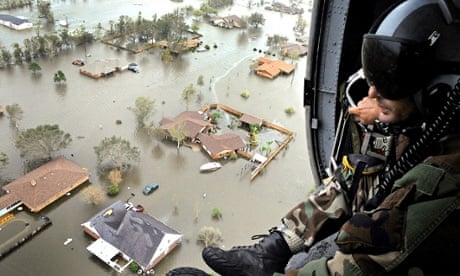
By Mark Drajem and Mark Chediak
Beaver County Peace Links via Bloomberg News
Oct 14, 2014 - Natural disasters from climate change will intensify global instability, disease, poverty and conflict, according to the U.S. Defense Department.
Global warming will worsen many of the challenges the U.S. military already is grappling with, the department said in a report yesterday.
"We refer to climate change as a 'threat multiplier' because it has the potential to exacerbate many of the challenges we are dealing with today -- from infectious disease to terrorism," Secretary of Defense Chuck Hagel said in a blog post. "While scientists are converging toward consensus on future climate projections, uncertainty remains. But this cannot be an excuse for delaying action."
The report underscores the seriousness of the risks as seen by the military, which handled flooding and tsunami relief efforts in Asia in recent years and is now responsible for setting up treatments centers for Ebola victims in West Africa.
"The issue of climate change as a national security risk is something that has been of concern and people have been discussing it for a number of years," said Charles Kolstad, a professor of economics and senior fellow at Stanford University in California, in a telephone interview.
He said climate change damage such as water scarcity are "much more likely to exacerbate regional conflicts, which can be real risks to the United States."
Planning Process
The report says that climate change will affect the military in four main ways: through rising temperatures, changing precipitation patterns, increasing intense storms and rising sea levels. ...(Click title for more)
|
 Reviewed by NICK ESTES Reviewed by NICK ESTES
La Jicarita
Oct 10, 2014 - History, especially Indigenous history, is still a site of struggle in academia, in public education, and in the popular national imaginary. The narrative conventions of U.S. history often create convenient niches for the so-called "Indian Wars" under the umbrella of a "history of the West." Past atrocities safely remain in the distant past, perhaps unfortunate, but nonetheless in the past.
Roxanne Dunbar-Ortiz's An Indigenous Peoples' History of the United States derails this narrative. She contends that the genocidal history of the U.S. against Indigenous peoples was not only foundational to bring the nation into existence but required to export it as a global project in the twenty-first century. Indigenous peoples, perhaps the first and longest standing enemies of U.S. empire, remain central to this history of the U.S. and its future.
For this reason, Dunbar-Ortiz's highly accessible An Indigenous Peoples' History of the United States is the Bury My Heart at Wounded Knee of our times. When Bury My Heart hit bookstores in 1970, it became a national bestseller. Mass protests against the Vietnam War drew connections to the U.S.'s genocidal and imperial past of Indian-hating and colonial massacres.
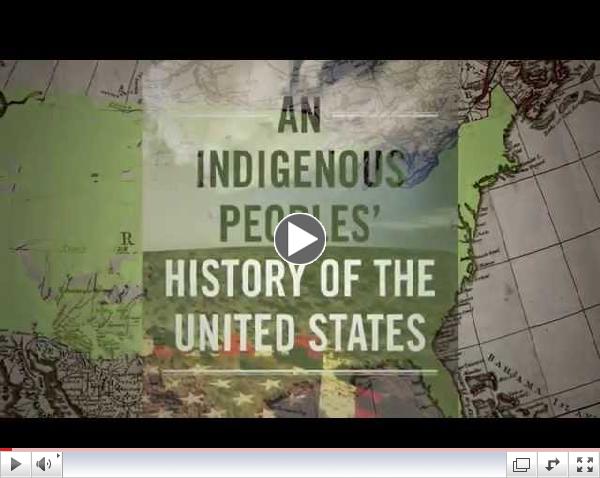 | | Book Trailer: An Indigenous Peoples' History of the United States by Roxanne Dunbar Ortiz |
In the same moment, the burgeoning Red Power movement was radically altering the landscape of Indigenous scholarship and political struggle on the domestic and international stages. It didn't call U.S. imperialism exceptional, but rooted in the genocide of Indigenous peoples. Dunbar-Ortiz, a participant in both of those struggles, writes in a time when the militarization of the globe under U.S. empire in a post-9/11 world has again exposed the fallacy of U.S. democracy. Yesterday's enemies of empire, Indians, are made anew in our present moment as the ever-looming "terrorist threat."
To understand this, Dunbar-Ortiz asks us to reconsider the foundation of the U.S., making several claims. First, the U.S. is a colonialist settler-state, which "is not to make accusation but rather to face reality, unless Indigenous peoples are erased." (7) The "refusal or inability" of U.S. historians to understand their own history is the source of the problem, or "the absence of the colonial framework." (7)
Second, Indigenous resistance is over five centuries old and needs to be re-framed within a broader history of the Americas that does not result in complete annihilation and disappearance. She writes, "Surviving genocide, by whatever means, is resistance." (xiii) This also means rethinking history from an Indigenous perspective as active participants in shaping their own histories of themselves, the land, and the formations of U.S. colonialism.
Lastly, U.S. "culture of conquest" means violence, genocide, expropriation, destruction, and dehumanization of Indigenous peoples. It is a historically rooted structure, not an event that happened in the past. Indian hating was a requirement to export colonial violence to rest of the world. "Perhaps it was inevitable," Dunbar-Ortiz writes, "that the earlier wars against Indigenous peoples, if not acknowledged and repudiated, ultimately would include the world." (12)
Piece by piece, An Indigenous Peoples' History dismantles the U.S. national narrative, and rigorously interrogates it from an Indigenous perspective. Beginning with the origin stories of European settlers arriving in the "New World" who sought to transform the landscape into the image of the land they left, death and elimination of Indigenous peoples followed in their wake. They appropriated the existing infrastructure of trade routes and agriculture and initiated war after war of extermination to seize land and resources.
Here, Dunbar-Ortiz works against the so-called "terminal narratives" to which many U.S. historians subscribe, that Indigenous population decline was mainly due to biological factors such as disease. Conveniently absent from these narratives is over three centuries of colonial warfare waged against Indigenous peoples. "Commonly referred to as the most extreme demographic disaster-framed as natural-in human history," Dunbar-Ortiz writes, "it was rarely called genocide." (40)
European ideas of property also played a crucial role in the colonization of the Americas. Peasantry dispossessed of land and livelihood, especially in British occupied Ireland, comprised the rank-and-file of newcomers who came to make a life of their own. They had little choice in the matter when faced with the alternative of starvation and death at home. With them also came soldier settlers, or Ulster-Scots, who were seasoned and violent settlers in the colonization of Northern Ireland. They also brought the practice of scalping, which they first used on the Irish, and the tools of colonization necessary for violent war making against Indigenous peoples.
These Scots-Irish settlers formed the wall of colonization as both fodder for the "Indian Wars" and as militant settlers who pushed frontier boundaries. They willingly or unwillingly cleared the way for "civilization" by transforming the land into real estate. The myth was born that white European civilization was "commanded by God to go into the wilderness to build the new Israel" and "entitled to the land through their blood sacrifice." (55) ...(Click title for more)
|

By Carla Murphy
Colorlines
Oct. 10 2014 - I came of age in New York City overhearing older folks who'd lived through the crack era, ask a series of open-ended questions that began like this: "We didn't own no planes. How you think crack got here?"
How, indeed. That's the subject of a new film opening tonight called "Kill The Messenger." Actor Jeremy Renner plays investigative journalist Gary Webb whose controversial 1996 three-part newspaper series opens like this:
For the better part of a decade, a San Francisco Bay Area drug ring sold tons of cocaine to the Crips and Bloods street gangs of Los Angeles and funneled millions in drug profits to a Latin American guerrilla army run by the U.S. Central Intelligence Agency, a Mercury New investigation has found.
The drug network opened the first pipeline between Colombia's cocaine cartels and the black neighborhoods of Los Angeles, a city now known as the "crack" capital of hte world. The cocaine that flooded in helped spark a crack explosion in urban America and provided the cash and connections needed for L.A.'s gangs to buy automatic weapons.
The series rocked the country. One 1997 article described it as, "the most talked-about piece of journalism in 1996 and arguably the most famous-some would say infamous-set of articles of the decade."
So what happened after? Three major newspapers-The New York Times, The Washington Post and The Los Angeles Times-some in collaboration with the CIA, The Intercept reports-set out to discredit Webb. They did. In December 2004, Webb, an award-winning investigative journalist and 49-year-old father of three who reportedly suffered bouts of clinical depression, took his own life.
"Kill the Messenger," largely viewed as a vindication of Gary Webb, opens nationwide tonight. It's sure to stir memories for familes displaced by civil war in Nicaragua and those in the U.S. who not only came of age under crack-cocaine but, who also sought to rebuild their communities in the decades after.
As for the truth of Webb's claims, from Nick Schou, author of the biography on which the movie is based, in The Intercept:
"I think it's fair to take a look at the story objectively and say that it could have been better edited, it could have been packaged better, it would have been less inflammatory. ... But these are all kind of minor things compared to the bigger picture, which is that he documented for the first time in the history of U.S. media how CIA complicity with Central American drug traffickers had actually impacted the sale of drugs north of the border in a very detailed, accurate story. And that's, I think, the take-away here."...(Click title for more)
|
|
Keep up with the Moral Mondays with a Red Resolution...
Become a CCDS member today!
 The time is long past for 'Lone Rangers'. Being a socialist by your self is no fun and doesn't help much. Join CCDS today--$36 regular, $48 household and $18 youth. The time is long past for 'Lone Rangers'. Being a socialist by your self is no fun and doesn't help much. Join CCDS today--$36 regular, $48 household and $18 youth.
Better yet, beome a sustainer at $20 per month, and we'll send you a copy of Jack O'Dell's new book, 'Climbing Jacobs Ladder,' drawing on the lessons of the movement in the South in the 1950s and 1960s.
Solidarity, Carl Davidson, CCDS
|
|
|